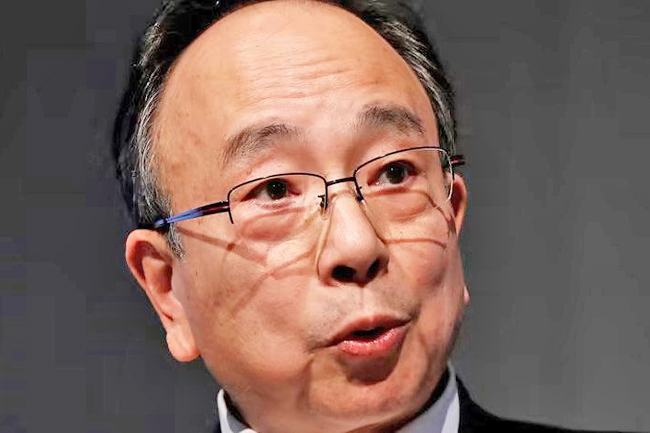CNA – Japan’s government has sounded out Bank of Japan (BOJ) Deputy Governor Masayoshi Amamiya to succeed incumbent Haruhiko Kuroda as central bank governor, the Nikkei newspaper reported early yesterday, citing anonymous government and ruling party sources.
The next BOJ chief will face the delicate task of normalising ultra-loose monetary policy, which is drawing increasing public criticism for distorting market function.
A career central banker who has drafted many of the BOJ’s monetary easing tools, Amamiya has been seen by markets as a top contender to take over as next governor.
Prime Minister Fumio Kishida’s administration is in the final stages of deciding on Kuroda’s successor along with two new deputy governors, and is in discussions with the ruling coalition about the process, the Nikkei said.
The government’s nominees will be presented to Parliament later this month and take effect upon approval by both Houses of Parliament, which is effectively a done deal due to the ruling coalition’s solid majority in the Diet.

The Nikkei report did not say whether Amamiya accepted the offer. The Prime Minister’s Office and the BOJ were not immediately available to comment on the Nikkei report outside of regular office hours.
Kishida’s choice of a successor to Kuroda, whose five-year term ends on April 8, will likely affect how soon the central bank could phase out its massive stimulus as inflation hit four per cent in December, double its two per cent target.
The dollar rose 0.75 per cent to JPY132.18 following the Nikkei report, rising above the 132-level for the first time in more than three weeks, as Amamiya is seen by markets as more dovish than other contenders for the post.
Amamiya played a key role in drafting Kuroda’s asset-buying programme in 2013 and consistently called for keeping ultra-low interest rates.
But he also said in July the BOJ must “always” think about the means of exiting ultra-loose monetary policy.
Amamiya and Masazumi Wakatabe are currently serving as deputy governors, but their five-year terms end on March 19.



















































